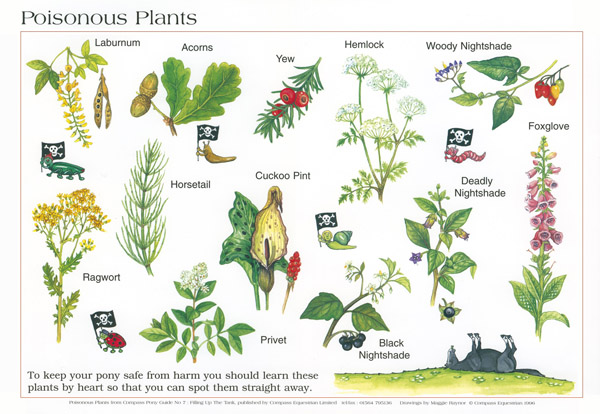
I recently attended a presentation on cover crops. The concept has intrigued me but the details have eluded me for several growing seasons. I rearranged my work schedule and went to a mid-afternoon meeting at UT Extension where Mike Hubbs, a soil specialist at Tennessee Association of Conservation Districts (tnacd.org), provided knowledge, visuals and seeds for the home gardener. I recorded the presentation, the quality of which I will apologize for up front. I was distracted several times and I believe I sneezed once; you will be able to tell that I am not a professional videographer. The knowledge is all there, though, and you can find the video on the RC Farmers Market YouTube channel or at dailymotion.com/ourlocalpride.
The Conservation’s website is also a resource on cover crops. Mike’s interest, as he speaks throughout the state, is to encourage home gardeners to adopt the practice.
In summary, using cover crops is a different form of gardening and farming. It is not an add-on but a different technique. Considering my busy schedule, it looked to me like there is much less maintenance, although that was not why I went. I will accept less work in the garden at any time.
My purpose for going was to find ways of improving soil health. My interest in soil health is selfish. I want to grow and eat vegetables with the highest possible nutritional content. As a culture, we have greatly depleted our soils and the quality of food produced today is of a poorer nutritional value than food produced two generations ago. Since the 1940s, the ongoing soil disturbances caused by aggressive tillage coupled with chemical dosing has changed the nutrients and life activity in the soils. Those changes produce changes in any food grown in it and studies have shown the nutritional value has diminished. In this cycle of effects, the next stop is the consumer of the food. The food eaten contains less nutritional value than the organism needs to stay optimally healthy. Without proper nutrition, disease and malfunction occur. There are many studies and books that back up these statements.
So, how does one improve soil health?
Cover crops are a tool to assist in this process. It takes time and it takes seasons, but it is doable. Late August and September is the time to get cover crops in. What is a cover crop? It is a plant grown for the protection of the soil, and many plants can be grown as cover crops. The package of seeds given to us at the presentation was a mixture of rye, oats, winter peas, crimson clover, radishes and turnips. Throw them all together; companion planting for soil health—root crops dig into the earth; nitrogen fixers are there for growth in the spring; coverage will assist in erosion control. The cover crops help nutrients return to the soil that were extracted in food production.
So what happens to the cover crops? What do you do with them? The technique shown by Mike Hubbs silenced the room. Before you plant in the spring, lay them down. Dragging a 2-by-4 over the field will do it. If you have access to a landscape roller or a roller crimper with angle iron blades, use it.
Then, use a tool that can poke between the spent, laid-down plants. If your garden is small enough, you can use a screwdriver to get a hole into the soil for the spring plants. The old cover crop acts as a mulch which is a weed suppressant. It deteriorates and adds to the soil composition and nutritional basis as the spring vegetables grow. With seasons of this practice, the roots of the vegetables dig deeper into the soils, deeper than tillage can reach. The textural content of the soil improves, helping water absorption and retention. The mulch minimizes weeds. It is a no-till method.
I would like to work with someone who can assess the nutritional quality of vegetables produced. It would be great to do a scientific, documented year-to-year analysis of the nutritional content. Any takers?
 The Farmers’ Market located at the Lane Agri-Park Community Center, 315 John Rice Blvd. in Murfreesboro is held indoors and is open from 7 a.m. to noon on Tuesdays and Fridays. It is a producer-only market. Offered by UT Extension at 9 a.m. on both days of the market are free educational classes for the local gardener. Classes last about one hour and are given by professionals and Master Gardeners. A wide range of topics are offered. Many of the classes are recorded and can be viewed at the RC Farmers Market YouTube channel.
The Farmers’ Market located at the Lane Agri-Park Community Center, 315 John Rice Blvd. in Murfreesboro is held indoors and is open from 7 a.m. to noon on Tuesdays and Fridays. It is a producer-only market. Offered by UT Extension at 9 a.m. on both days of the market are free educational classes for the local gardener. Classes last about one hour and are given by professionals and Master Gardeners. A wide range of topics are offered. Many of the classes are recorded and can be viewed at the RC Farmers Market YouTube channel.
Upcoming Farmers’ Market Classes
Aug. 3 – Backyard Chickens
Extension Agent Kim Hall leads an overview of owning backyard chickens.
Aug. 7 – Offered in Spanish: Stretch Your Food Dollar
Extension Program Assistant Karla Erazo teaches a class in Spanish that will cover tips to help you save money at the grocery store.
Aug. 10 – Tree & Shrub Studs & Duds
Some plants are naturally more trouble-free and are better performers, as discussed by Extension Agent Mitchell Mote.
Aug. 14 – The Story of Pollinators
Learn more about our pollinators with Jack Smith.
Aug. 17 – Make a Charity Quilt Block
Learn to sew a block to contribute to a community charity quilt with Certified Master Gardeners Sara Parnell and Rebecca Tucker.

Aug. 21 – Poisonous Plants
Certified Master Gardener Carol Reese leads a class on poisonous plants.
Aug. 24 – Small Ruminate Breeding
Extension Agent Logan Hickerson provides an overview of preparing both sheep and goats for fall breeding.
Aug. 28 – Seasonal Eating
Extension Agent Carla Bush provides a food demonstration to offer recipes and tips for selection and preparing our local, fresh foods.
Aug. 31 – Water Conservation
Learn the importance of water conservation and various ways you can help conserve water with Katie Peay from Rutherford County Planning & Engineering.
Sept. 4 – A Living Landscape
Certified Master Gardener Larry Rogers leads a discussion of how a home landscape can coexist with wildlife and promote pollinators.













